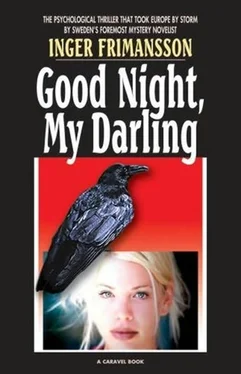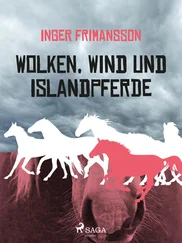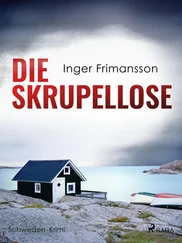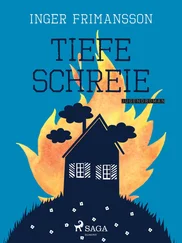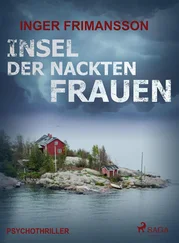Inger Frimansson - Good Night, My Darling
Здесь есть возможность читать онлайн «Inger Frimansson - Good Night, My Darling» весь текст электронной книги совершенно бесплатно (целиком полную версию без сокращений). В некоторых случаях можно слушать аудио, скачать через торрент в формате fb2 и присутствует краткое содержание. Жанр: Детектив, на английском языке. Описание произведения, (предисловие) а так же отзывы посетителей доступны на портале библиотеки ЛибКат.
- Название:Good Night, My Darling
- Автор:
- Жанр:
- Год:неизвестен
- ISBN:нет данных
- Рейтинг книги:3 / 5. Голосов: 1
-
Избранное:Добавить в избранное
- Отзывы:
-
Ваша оценка:
- 60
- 1
- 2
- 3
- 4
- 5
Good Night, My Darling: краткое содержание, описание и аннотация
Предлагаем к чтению аннотацию, описание, краткое содержание или предисловие (зависит от того, что написал сам автор книги «Good Night, My Darling»). Если вы не нашли необходимую информацию о книге — напишите в комментариях, мы постараемся отыскать её.
Good Night, My Darling — читать онлайн бесплатно полную книгу (весь текст) целиком
Ниже представлен текст книги, разбитый по страницам. Система сохранения места последней прочитанной страницы, позволяет с удобством читать онлайн бесплатно книгу «Good Night, My Darling», без необходимости каждый раз заново искать на чём Вы остановились. Поставьте закладку, и сможете в любой момент перейти на страницу, на которой закончили чтение.
Интервал:
Закладка:
The pain in her head returned.
She remembered the strength of the blood as it hit her arms; she remembered it burned.
They brought her in to talk, again and again. Her head cramped. Some policemen and a woman named Nancy Fors. She was light-skinned; she was a Swede. She had been sent from the embassy.
The windows in the room had bars.
She repeated.
“I came out of the shower, and there was someone there, a man. She lay on the floor. Martina lay on the floor and I screamed, and he turned toward me. No, I don’t remember his face, dark, thin. I ran into the bathroom. I slid and hit myself and the towel got wet. I heard him close the door. Then I went out. She was lying there, already dead.”
“Where did you hit yourself, Miss Dalvik?”
She drew up her skirt and showed them, here, here on my thigh. She was full of scratches and strange bites.
There was a doctor in the room. He touched her leg and made her scream.
She remembered a syringe and the smell of ether. Or was that later?
Maybe that was later.
“That man?”
“Yes.”
“How old do you think he was?”
“I don’t remember, I told you already.”
“Was he thirty? Or just twenty?”
“He was dark and thin.”
“Tell us everything again.”
“She lay on the floor, and the parang was in her back.” “Did he threaten you, Miss Dalvik?”
“He didn’t have time. I ran into the bathroom and locked the door. He had killed Martina.”
And it turned heavy and hard to breathe. The air didn’t make its way to her lungs. She tried to find oxygen and finally screamed right out loud.
Then there was a hospital, because everything was white: the sheets, the walls. Nancy Fors had a pleasant, long face. She sat next to the bed every time Justine opened her eyes.
“Ben, the man who was in the jungle with you, asked me to say hi.”
She cried when she heard his name.
But mostly she slept.
Nancy Fors said:
“They’ve caught a man who specialized in hotel burglary.” “They have?”
“Yes, they wonder if you can come by and identify him,” She had been sleeping for many days. Now she put on the clothes that Nancy Fors chose for her, wide long trousers and a patterned tunic with long arms.
“They’re my clothes. I think we wear the same size. You can keep them.”
She looked through a peephole. A man was sitting there; he was thin with a hollow-cheeked face.
“They’re wondering if he is the one,” Nancy Fors said.
She said she didn’t know.
She would have liked to say goodbye to Ben, but she wasn’t going to get the chance.
She would never see him again.
Nancy Fors went with her on the plane, to be either her support or her guard. They went together all the way back to Stockholm.
part three
Chapter ONE
There were a number of interrogations back in Stockholm, too. Two Swedish citizens had lost their lives in Southeast Asia. Justine had been in contact with both of them.
The first day, the telephone rang so much that she pulled the jack out of the socket. The police lent her a cell phone. We have to be able to reach you, they said. Make sure that the batteries don’t run down.
But every time they mentioned Nathan Gendser’s name something happened to her breathing; she had to loosen the clothes around her neck and she began to hyperventilate. She cried and ripped wounds into her arms.
She had been exposed to trauma. They gave her the name of a psychologist, but she didn’t bother to contact her.
She did not dare refuse to answer the cell phone. One of the first days, Nathan’s son Micke called. She let him come by the house.
There was a certain similarity between them, and as soon as she saw it, she had to start crying again. She rushed up from her chair in the blue room and left him by himself. Sitting on the bed in her room, she heard him wander about the house calling for her. Finally, she stepped back into the hall.
He was standing on the stairs, gripping the railing tightly. The bird was flying around the ceiling; he had been alone for so long now that unfamiliar voices made him excited. Justine called to him, but it took a while until he flew to her.
“Don’t be afraid,” she called down the stairs. “The bird is more afraid than you are.”
Then she thought of the tigers and how Ben used the exact words: “He’s far away from here; he’s much more afraid of you.”
She sat down on the top step, sit down, she told the boy, did you know that we saw a tiger’s spoor?
“Do you think a tiger could have killed him?” he said thickly.
“More likely it was an elephant.”
“An elephant…”
“Yes, there were elephants near the camp.”
“Jesus Christ!… Did you see them?”
“Not me. One of the guys with us in the jungle, Ben, said that he had never had experienced an animal attacking.”
“Maybe he annoyed them?”
“Your father?”
“Yes.”
“No, he didn’t bother them. But maybe there was a sick or injured animal… you never know what could happen… the jungle is so… well, unpredictable.”
“He was so into this job. I’ve never seen him like that. He thought he’d found his niche, we talked about me… eventually…”
“How old are you, Micke?”
“Soon I’ll be sixteen.”
“Almost grown up.”
He shrugged.
Suddenly, it all seemed to her a scene from the theater. She got up and went to him, next to him on the stair. The bird flew away to her room.
She placed her hand on the boy’s head. The lines came just as they were supposed to.
“Go home and comfort your sisters. We can believe that your pappa is doing fine wherever he is. He was a man of adventure; he died with his boots on, as they say. He died when he was most happy. Out in nature, in the middle of a great adventure. How many people get to do that?”
And as she spoke, she realized that what she was saying was the truth. By sacrificing the one person she loved and valued more than any other, she had let him escape from trivial everyday life which sooner or later would overcome him, as it overcomes all of humanity. He would never be forced to return home, never need to grow old, never need to experience how his body broke down bit by bit, so that he finally would be sitting crippled and distorted by arthritis, forgotten and alone in a nursing home somewhere. She had helped him escape all that.
But the sacrifice was enormous.
The awkward boy fell to pieces; he cried loudly and violently.
She embraced him, as she had once embraced his father, felt his jacket and skin.
“He was so wonderful, Nathan, so strong and fine and courageous. I have never loved anyone as much as I loved your pappa.”
She pushed him carefully away.
“Sometimes I used to play for him. I have a horn… Maybe I could play a melody or two for you, if you want.”
“What kind of horn?” he said, suspiciously.
“An old post horn which I received when I was a little girl.”
“I don’t know… Can someone really play those things?”
“Oh, yes.”
She got up and took down the instrument. It was covered by a thin layer of dust. She rubbed it with a fold of her skirt.
“I played for him a few times. He liked to hear me play.”
She stood by the window and placed the horn to her lips.
While she played, she saw the boy clench his fists.
When he had left, she broke down. A shrieking and cackling laugh rose from her throat. She wasn’t able to stop it. It gushed out of her, forced her to cramp up. She pressed her tongue to the wall, the taste of stone, the taste of dust and stone. But the laugh kept coming.
Читать дальшеИнтервал:
Закладка:
Похожие книги на «Good Night, My Darling»
Представляем Вашему вниманию похожие книги на «Good Night, My Darling» списком для выбора. Мы отобрали схожую по названию и смыслу литературу в надежде предоставить читателям больше вариантов отыскать новые, интересные, ещё непрочитанные произведения.
Обсуждение, отзывы о книге «Good Night, My Darling» и просто собственные мнения читателей. Оставьте ваши комментарии, напишите, что Вы думаете о произведении, его смысле или главных героях. Укажите что конкретно понравилось, а что нет, и почему Вы так считаете.
